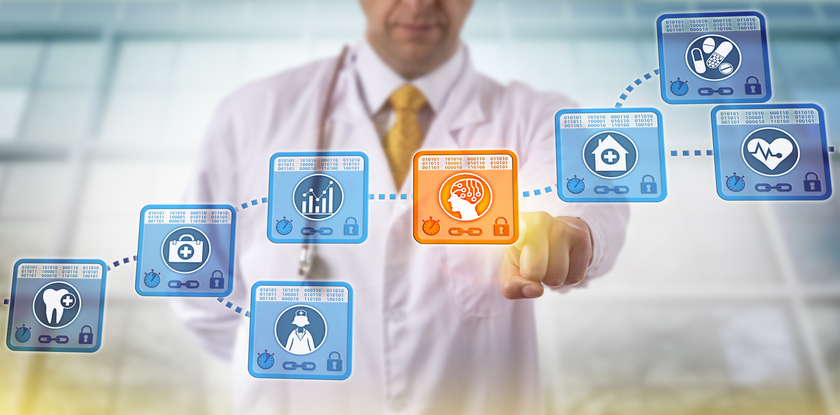
Top 5 Things to Know About Medical Data Security
In Australia and around the world, the healthcare system is increasingly reliant on electronic health records (EHRs). While EHRs offer numerous benefits like improved access for patients and healthcare providers, they also introduce significant security risks.
Medical data is highly sensitive, containing personal information, diagnoses, treatment details, and other confidential details. A data breach involving medical records can have devastating consequences, leading to identity theft, financial fraud, and more.
To protect your health practice, it’s vital to be familiar the critical aspects of medical data security, including the key threats, regulations, and best practices for protecting patient information. By understanding these essential elements, healthcare providers and patients alike can play a vital role in safeguarding sensitive medical data.
The Growing Threat Landscape for Medical Data In Australia
Cybercriminals are increasingly targeting healthcare organisations in Melbourne and around the globe due to the valuable nature of medical data. According to the latest IBM Cost of a Data Breach Report, healthcare continues to have the highest data breach costs of any industry, including financial.

Here's a breakdown of some common threats:
- Hacking: Cybercriminals may exploit security vulnerabilities in hospital IT systems to gain unauthorised access to patient data.
- Phishing Attacks: Deceptive emails or messages designed to trick healthcare personnel into revealing login credentials or clicking on malicious links that can infect systems with malware.
- Ransomware Attacks: Cybercriminals may encrypt hospital data and demand a ransom payment in exchange for decryption, potentially crippling hospital operations and patient care.
- Insider Threats: Disgruntled employees or unauthorised individuals with access to healthcare systems can pose a significant security risk.
The Role of the Australian Privacy Principles (APPs) in Protecting Medical Data
The Australian Privacy Principles (APPs) form part of the Privacy Act 1988 and set out the privacy obligations of organisations that handle personal information, including healthcare providers. The APPs are similar to HIPAA in the United States and mandate that healthcare providers take appropriate measures to safeguard patient information.
These measures include:
- Implementing data security measures: This includes using appropriate security safeguards to protect PHI from unauthorized access, disclosure, loss, or misuse.
- Openness and transparency: Healthcare providers should have a privacy policy that outlines how they collect, use, and disclose patient information.
- Individual access: Patients have the right to access their health records and request corrections to inaccurate information.
Best Practices for Medical Data Security in Australia
Beyond complying with the APPs, healthcare organizations can implement additional security best practices to further protect patient information:
1. Access Control
Enforce strict access controls, granting access to patient data only to authorized personnel who require it for their specific role.
2. Data Encryption
Encrypt sensitive medical data both at rest (stored on servers) and in transit (being transmitted across networks) to render it unreadable in case of a breach.
3. Regular Security Audits and Risk Assessments
Regularly assess your IT infrastructure for vulnerabilities and implement appropriate security measures to mitigate risks.
4. Employee Training
Provide regular training for healthcare staff on cybersecurity best practices, including phishing attack awareness and password hygiene.
5. Incident Response Plan
Develop a comprehensive incident response plan outlining procedures for detecting, responding to, and recovering from a potential data breach.
Conclusion: A Shared Responsibility for Data Security in Australia
Medical data security is a shared responsibility between healthcare providers, patients, and technology providers. By understanding the evolving threat landscape, adhering to regulations like the APPs, and implementing best practices, healthcare organizations can create a more secure environment for patient information. Patients can further contribute to data security by being vigilant and protecting their own health information. Through a collaborative effort, we can safeguard sensitive medical data and uphold patient privacy in the digital age.
XpressteX: Hospital IT Support You Can Rely On
Hospital tech support is critical to managing the operations of healthcare practices in Melbourne seamlessly. Whether you run a small medical practice or a large healthcare facility, having the right technology support in place is crucial for ensuring smooth workflow and excellent patient care.



